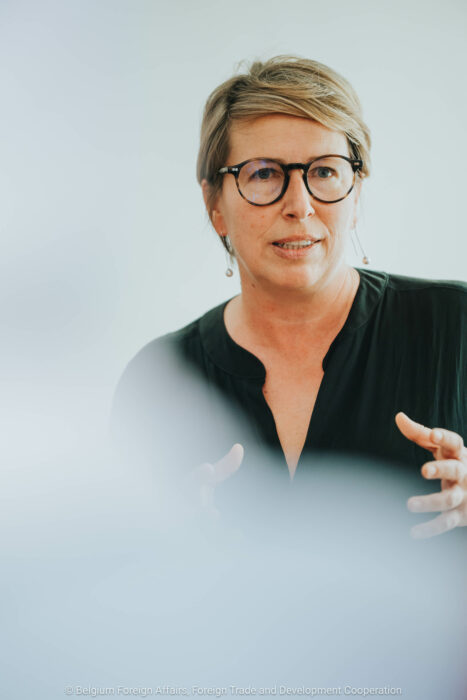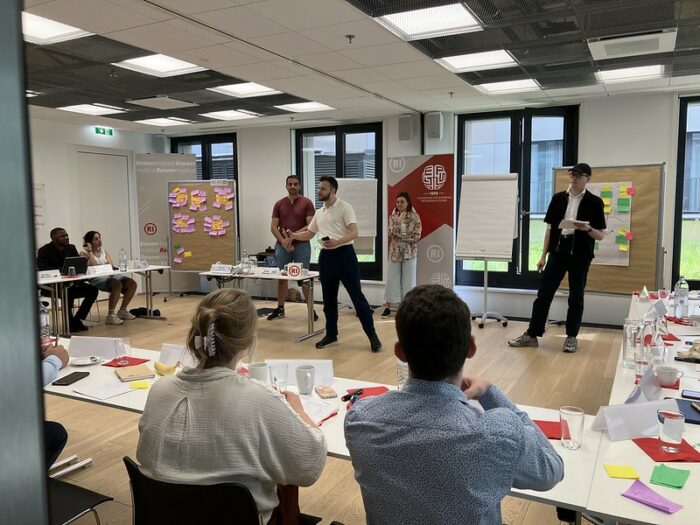The Progressive Post
Practice solidarity and stay engaged – it is that simple

In turbulent times, acting in accordance with your progressive values and staying engaged in finding compromise beats getting compromised in a game of zero-sum geopolitics. The EU’s international cooperation should be based on a few simple progressive pillars: international solidarity, clear and well-defined principles and objectives, as well as continued engagement with our partners.
Europe is at a juncture. The international order established after World War II – the same one in which European integration flourished – has been shaken to its core lately. Global power dynamics are shifting, veering away from Western centrality. At the same time, we are grappling with increased conflict, unrest and widespread suffering. The call for social and environmental equity resonates more profoundly than ever. Therefore, international solidarity should be at the core of our foreign policy, to ensure that foreign policy becomes progressive policy.
We need to convince policymakers and everyone who is engaged in the international solidarity movement, of this. Some people who are engaged in international solidarity are not necessarily into politics. They say: ‘we are do-gooders, we are engaged in good deeds’. That commitment is necessary and admirable. But it is just as important to understand that politics do matter. It is about power relations. About impact and about having a seat at the table. You have to claim that seat at the table, whether we are talking about Ukraine or discussing Gaza.
And that is only possible when you work with and act according to clear and well-defined principles and objectives. That is my second pillar for progressive development policies.
The European Union and its member states have increasingly aligned their development policies with their geopolitical priorities. But that has not been without its challenges.
The coups in Mali and Niger taught us that having many different ‘geopolitical’ responses to undemocratic tendencies proves to be of little strategic value. The split positions on the humanitarian catastrophe in Gaza starkly contrast with the principled and united response to the Russian invasion of Ukraine. This amplifies the frustrations of the Global South about the lack of solidarity during the pandemic and in the fight against climate change, as well as insufficient progress on the sustainable development goals (SDG). It also enhances accusations of double standards.
All this contributes to Europe’s soft power facing big challenges. And yet, it is crucial to remember that Europe is still the largest Official Development Assistance (ODA) donor in the world, contributing a very significant 43 per cent of ODA in 2022.
In a world where geopolitics dominate, Europe must play its strengths. We can bolster our international partnerships if we focus on and leverage our unique selling proposition: an international cooperation grounded in universal international human rights standards and, of course, democracy. This, together with a strong emphasis on socio-economic development and based on the experiences of European welfare states. Both make up a core part of our shared values.
My third and final pillar for progressive development policies is ‘staying engaged’. Let me give an example: last summer, the Ugandan parliament introduced a harsh anti-LGBTQ+ bill. This bill establishes tough sentences for a range of homosexual acts, including the death penalty.
The World Bank, Uganda’s biggest development lender, halted loans to the country after President Yoweri Museveni signed the ‘Anti-Homosexuality Act’. Now, Uganda is negotiating with China for a loan to finance the construction of a pipeline to help the country export its crude oil to international markets. And there will be no further discussion about the ‘Anti-Homosexuality Act’.
We used another approach with the Ugandan authorities. We decided to stay engaged after Ugandan human rights defenders asked us explicitly to do so. But, for the first time in the history of the Belgian development cooperation, we triggered a specific clause in our partnership agreement (article 11). The clause states that, if one of the partners deems that the other has failed to respect one of its fundamental obligations, like the respect for human rights, the other partner has the right to start diplomatic consultations. It sent a strong signal that Belgium will not tolerate any kind of discrimination in its development projects. At the same time, it entails starting a discussion to see if a way forward can be found. So, since July, we are having an open and constructive conversation about human rights with the Ugandan government.
By staying engaged you can have a fair debate as equal partners and listen profoundly to one’s arguments (what is relevant for Europe is not ‘free of sins’). At the same time, we strengthened our support of human rights defenders in Uganda.
That is what we must do more. Democracy is more than just organising elections. We must actively engage with local civil society, by strengthening their capacities and supporting regional mechanisms for dialogue and institutions linked to democracy, good governance and the rule of law. Institutions that citizens can trust and that are open to greater citizen involvement. That is why I introduced the Civic Space Initiative, aiming to strengthen civil society, as an advocate for human rights, and foster democracy in our partner countries in Africa and the Middle East.
Widespread inequality leads to instability and conflict, but Europe will only be safe in a safe world. The global pursuit of human rights, social welfare and equality for all should, therefore, be at the forefront of our international partnerships.
It is often said that the state of human rights and democracy in the world is dire, as doubts grow about their ability to deliver concrete positive outcomes for people’s lives. But human rights and democracy are ingrained around the world. As more than half of the world’s population will cast their ballots in elections around the globe in 2024, from Mexico to Rwanda, from the EU to the US. These common values will be at the forefront of the international debate.
So, let us tackle this debate with a clear narrative and a positive engagement.
Europe can stay a credible and strong partner in achieving a deeper democratisation. Emphasising the EU’s work in upholding a value-driven development cooperation, that upholds a strong focus on socio-economic welfare, offers a counterweight to fading faith in democracy and human rights.
Photo credits: Shutterstock.com/Lightspring




